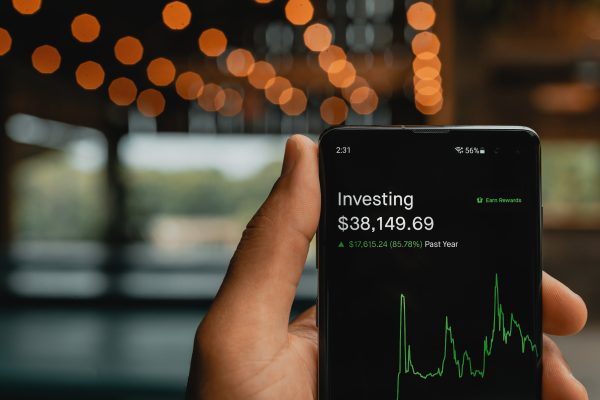
Stock Market Rally: What does it mean for your portfolio?
21 July 2023 6 min read

6 min read
Published:
Updated:
BO
Billal Omarjee
Everyone with money needs to think about investing at some point or another, but for Muslims its also important to think about investing in line with their faith. That’s where halal investing comes in.
Without following those rules, Muslims would be going against the wishes of Allah and be falling into sin.
In this article we’ll give an overview of the key halal investing concepts to be mindful of.
“Halal” in Islam means lawful or permissible. It is the opposite of haram which means impermissible or unlawful.
Halal is not just related to food, money etc, but it includes all humans actions and behaviour too. For example, the way we conduct ourselves in society will also fall under “haram” or “halal”.
In Islam, only God has the authority to make something halal or haram. No one else has the authority or power to make something halal as haram and vice versa. However, it is clear that not everything is mentioned in the Quran and Sunnah. The only way a Muslim can decide whether something is halal or not for him to do or to consume is by identifying certain principles.
What does this mean?
First. it is not reasonable to believe that every single thing has been mentioned categorically by God during the time of revelation. For example, when it comes to investing, people tend to ask ‘why do you say this stock and that stock is halal or haram’, or ‘is Bitcoin halal? please provide an answer from Quran and Sunnah’. How would the Prophet (PBUH) even mention to the companions that BTC is halal, if there was no concept of blockchain at the time?
Instead, God has revealed certain principles to guide us in taking decisions in our day to day lives. When it comes to investing, there are many ways one can choose to invest. People usually decide based on the type of return they are seeking, or the risk appetite they have. For the Muslim investors, they will have to further take into consideration whether the investment itself is halal or not.
For this, he will have to identify where is he actually investing. As an example, in financial markets the term ‘sinful stock’ refers to stock from a company that is associated with (or is directly involved in) activities considered unethical or immoral. These include porn, gambling, and tobacco stocks (which are halal stocks too).
Although they may present investors with an ethical dilemma, these companies provide relatively stable returns to investors, both in good times and bad. Hence, a Muslim could unknowingly be investing in a company or fund, that has a portion of its investment in so called sin stocks.
If the underlying asset and industry are both shariah compliant, then the next point to consider is the structure of the investing contract. Does it involve interest (riba)? (To understand the issue of riba and its prohibition click here)
Bonds are an example of a famous investment which bears interest. Conventional bonds come in various forms and are all haram (impermissible) because of the riba present in them.
It is worth noting that riba is not restricted to increases in loan transactions due to the deferment of time of payment. In fact, riba might also occur in any unjustified excess above and beyond the capital, whether in loans or in trade.
Another issue that Muslim investors must be wary of is the presence of gharar in some contract. Gharar has been defined as risk, uncertainty, and hazard.
Abu Huraryrah narrated that the prophet (pbuh) prohibited all sales on gharar. Because of this, scholars believe it is impermissible to invest in conventional derivatives such as options and futures because of the amount of gharar involved in them.
The last fundamental issue that must be taken into consideration is the maysir (gambling). Maysir is derived from the Arabic root verb yasara which means “lucky chance” or “ ease of obtaining something of value without earning it”.
The Quran explicitly condemned and prohibited gambling:
O you who believe! Wine, gambling, altars and divining arrows are filth, made up by Satan. Therefore, refrain from it, so that you may be successful” (5: 90). Satan wishes only to plant enmity and malice between you through wine and gambling, and to prevent you from the remembrance of Allah and from Salāh. Would you, then, abstain? (5: 91).
It is important to clarify, that the concept of gambling in Islam is not restricted to games. Every action or word which involves wagering of property to be given to the winner is categorised as gambling. In the financial market, investments such as spread betting and CFDs would fall under the gambling category.
Allah says in the Quran: “It is He Who has made the earth submissive to you, so traverse its path and eat of what He provides you…[67:15)
The fundamental attitude of Islam toward man’s position in the world is that Allah has made the earth for the benefit of man. Allah has also given him control over it. It is the duty of man to profit from this favour and to exert himself to seek Allah’s bounties throughout the earth.
Sheikh Qardawi argues that Islam urge Muslims to engage in trade and commerce, and to undertake journeys for what the Quran refers to as ‘seeking the bounty of Allah’.
As we said earlier, there are many investment methods out there. There are also many ways to earn money through other means. We are free to choose the methods that are suitable for us. However, we must differentiate between halal and haram methods available to us.
In various places, the Quran and Sunnah, remind us the importance of halal earnings.
The Quran says: “Eat of what is lawful and pure in the earth, and do not follow in Satan’s steps.” [2:168]
“You see many of them racing towards sin, transgression, and consumption of forbidden gain. Evil indeed are their actions!”[5:62]
In a hadith, the Prophet said “Earning halal livelihood is binding (wajib) on every Muslim.” [Tabrani]
The Messenger of Allah said, “Allah the Almighty is Good and accepts only that which is good. And verily Allah has commanded the believers to do that which He has commanded the Messengers. So the Almighty has said: “O (you) Messengers! Eat of the tayyibat [all kinds of halal (legal) foods], and perform righteous deeds.” and the Almighty has said: “O you who believe! Eat of the lawful things that We have provided you.” Then he (pbuh) mentioned [the case] of a man who, having journeyed far, is dishevelled and dusty, and who spreads out his hands to the sky saying “O Lord! O Lord!,” while his food is haram (unlawful), his drink is haram, his clothing is haram, and he has been nourished with haram, so how can [his supplication] be answered? [Muslim]
Today, Muslims can invest in many financial products that have been certified as shariah compliant. This means, there are scholars, who are able to determine if an investment is halal or not.
These investments can be made in various assets classes. Broadly speaking there are four of them. For more information please click here.
To help you decide on the most suitable investment options available, please click here.

21 July 2023 6 min read

15 February 2023 7 min read

10 January 2023 11 min read